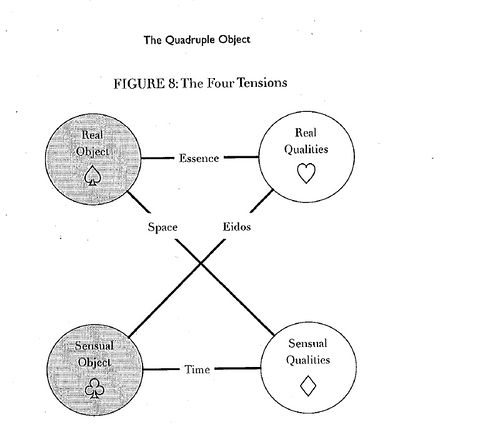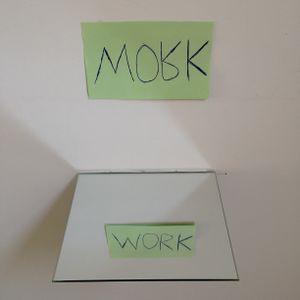Project proposal draft V2
Project proposal
During my research for graduation show I would like to investigate, what is an object, how do they produce a space, what kind of relationship exists between human and non-human, what are the possible solutions for the Anthropocentric world. From the view of object oriented ontology, subset of speculative realism and Medieval Islamic philosophers.
Relation to larger context
We live in an anthropocentric world where the human have a privilege on other species. Human activities started to have a significant global impact on Earth’s ecosystem(Non-human). Like climate change, drought, loosing our natural resources. One of my set aim is the search on possible solutions for this epoch in art context.
And with new technology we have new type of relation with machines, computers (Non-human) we can talk through them, human have more intimate space in our life than past. For example our smart phones, they are changing our way of life. Your can program your events, your sport practice. I think they are just basics. With artificial intelligence it will be more than this.
What are you doing
Last year during my self directed research I was reading more about Production of the spaces, and ecology till our thematic seminar call An Encyclopedia of Media Object with Florian Cramer. We investigated all the words in this title one by one. And during our discussions on what is an object, I started to interested in with this subject. We read Bruno Latour, Tristan Garcia, Heidegger. Then I started to read from Speculative Realist Graham Harman and the founder of object oriented ontology and Medieval Islamic Philosophers, Ghazali, Ash’ari about what is an object, what it does, what kind of relation it has with other objects in order to understand non-human objects or at least to have questions in my mind to investigate. Because in my opinion we are not living in an anthropocentric world anymore. Our activities harmed nature a lot and we have new objects that can talk to us. Maybe we cannot find a solution for this problems but it is good starting to realize to have this problems. We need to understand them and create an equal relationship with non-human.
What is an object? It started with this question. Everything is an object according to Harman. Sir Arthur Eddington say there are two type of tables in this room. One is physical that we can touch and see which has four legs and wood. The other one is scientific which consisted by atoms and electrons. But Harman says there is third one which is real table which cannot reducible and not accessible. Object oriented ontology is looking for the third table. You cannot paraphrase objects. For example poem cannot be paraphrase like this and this, all these descriptions are not going to fully express what is express what is expressed in poem. It is more than it description. There is not possible knowledge of objects, directly and we can never translate it perfectly to another language. There are two kind of objects, Real objects, Real qualities and Sensual objects, Sensual qualities.
Real objects cannot be reducible and accessible, real qualities are also hidden from us and never paraphrase. Sensual objects, Sensual qualities can accessible and reducible by other objects. When fire burns cotton it does not make contact to whole properties of cotton. When we hold the cotton we are reaching whole cotton. Fire may not be alive and consciousness, fire just touching certain features of the cotton just to its qualities. And tension between object and qualities produce Time and Space.
What I want to do
- For my project I would like to work with light and text(classification). There will be some meaningless letters in different colors like Green, Red, Blue, Magenta on the wall, maybe a paragraph. According to the color of the light you can see and read the text piece by piece.
-For example if the light is too red and you are wearing a red t-shirt under this light it is becoming whitish, grayish. Your eyes cannot see the real color. -I would like to start to experience it with red head light and some colorful filters on it. I will use same material with filters on the wall to write the letters.
- Second part of this project will be also related to text. Again there will text but upside down words or paragraph on the wall maybe led sign board on the wall. I will put a mirror under it in order to read the text by mirror.
- There is no direct access to real objects and its qualities
- Object's perception is beyond from ours
- Objects are tool for us to see, read, reach. They are big part of our life. They are part of our body.
What are you doing 2
Root project. The environment is one of the parameter that shapes our life. I started to travel to my village to know people and the environment. I believe we shape the environment and at the same time the environment shapes us. I collected minerals and stones and used photography and video at the beginning of the Root project to document the relationship between my roots and me. The relationship that I want to build up was not working at the beginning. Photographs and videos were not enough to tell my experiences, stories. Then I decided to build up a space for the viewer to experience my relation with my roots. The idea of building up a space or production of space comes from Lefebvre’s book “The Production of the Space”. By using the concept of “representations of space”, I created a dark room full of soil and a photograph in a light box. the installation turned into a representation of my village where visitors could experience, a disconnected relation to my roots. In the installation the earth is colder than the ambient temperature and the light box gave off ‘heat’.
The other part of my root project is a reproduction of my origin. At the end of this project I realized that my village is no longer my roots. My father and me were born in Istanbul not in this village. As a result of this project this village is just a beginning of my origin. I took the stones and minerals that I collected from my village as a starting point and started to reproduce them in different ways such as Resin, 3d mapping and reflections in a three sided mirror. The reproduced stones looked like each other (like me and my grandfather). In appearance reproduced stones are the same but they are totally different from each other internally. And on the other hand during this project working with stones helped me to establish a starting point to understand non-human language to build up non-hierarchical relationship in this anthropocentric contemporary world.
Tree is a three meter video installation. If you live in a city you forget the relationship with the natural environment. Cities are consuming nature to make new spaces for new buildings. We have less communication with nature in this century. We forgot how we could live together. In this video work I wanted to investigate the relationship between nature and human in cities in order to deny that there are existential divisions between human and non-human nature. There is a tree in my garden and it has direct impact to my life as physical, psychological. I started to records its movements as a diary. I project this video vertically in order to point my window and on the video there is a mirror which reflects part of video to opposite site in order to point myself.
Non-hierarchy is a sound installation based on text from Bruno Latour and sounds from different objects. “To balance our accounts of society, we simply have to turn our exclusive attention away from humans and look also at nonhumans. Here they are, the hidden and despised social masses who make up our morality. They knock at the door of sociology, requesting a place in the accounts of society as stubbornly as the human masses did in the nineteenth century. What our ancestors, the founders of sociology, did a century ago to house the human masses in the fabric of social theory, we should do now to find a place in a new social theory for the nonhuman masses that beg us for understanding”
...



